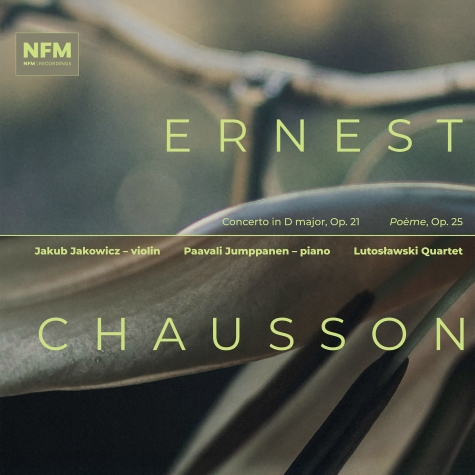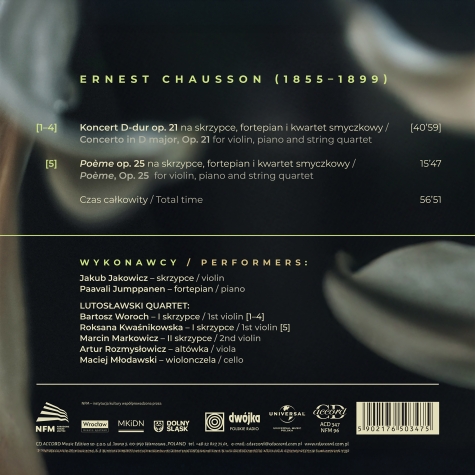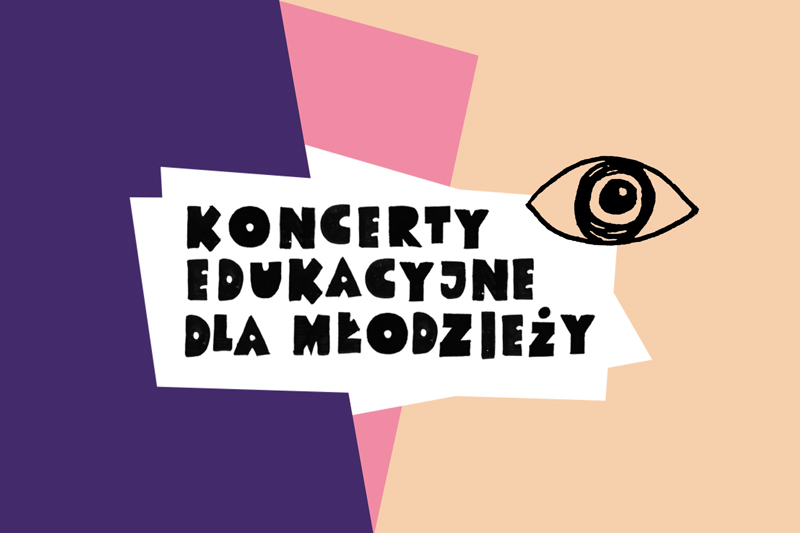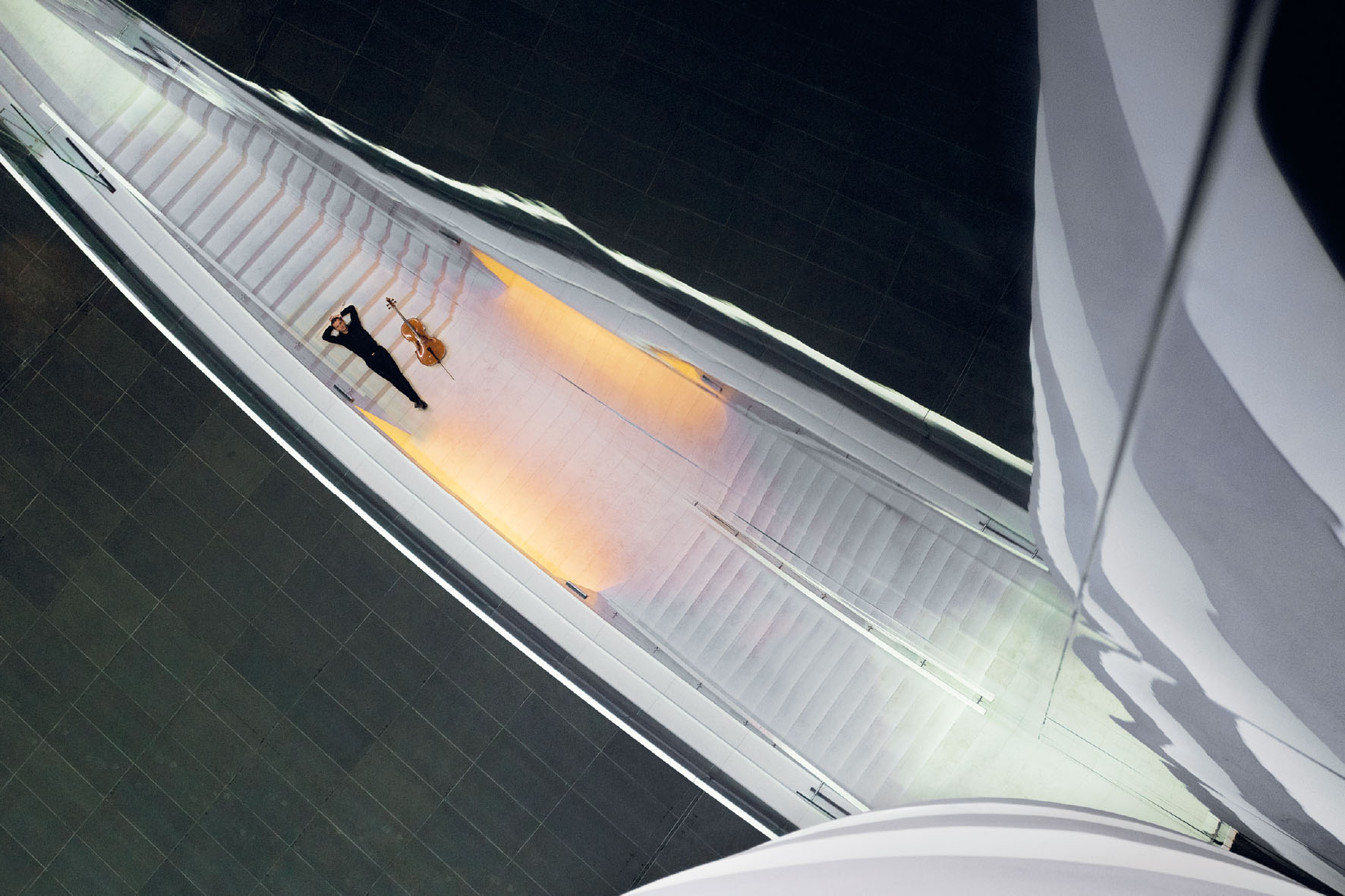Ernest Chausson
The latest album by the Lutosławski Quartet, recorded with such distinguished artists as the Polish violinist Jakub Jakowicz and the Finnish pianist Paavali Jumppanen. The album features works by Ernest Chausson: Concerto in D major op. 21, and Poème op. 25 – both pieces recorded in versions for violin, piano, and string quartet.
Album premiere: 13.06.2026
Publisher: National Forum of Music, CD Accord
Performers:Jakub Jakowicz, Paavali Jumppanen, Lutosławski Quartet (Bartosz Woch, Roksana Kwaśnikowska, Marcin Markowicz, Maciej Młodawski)
When Ernest Chausson was born, it was still the Berlioz era, and his future teacher, César Franck, was 33; Jules Massenet, with whom he studied, was 13; and Gabriel Fauré, who would eventually become “the greatest musical authority in France at the time,” was only 10. Claude Debussy was not yet born. Interestingly, by a fatal twist of fate – a bicycle accident during a vacation – Chausson’s earthly path ended almost at the very end of the 19th century, although his late work already prefaced the future horizon of music. Incidentally, […] musical impressionism broke out in France in 1894, with the first performance of Debussy’s Prelude a L’apres-midi d’un faune. However, it is hard not to believe that Ernest Chausson occupies a special position in the galaxy of French composers of the second half of the 19th century. And it is not only about – otherwise catchy slogan – the “links connecting Franck with Debussy”. If there had been no Chausson, European music, and not only French music, would have been short of a seasoned lyricist, a composer gifted with extraordinary melodic inventiveness, susceptible to poetic moods and sensitive to the nuances of text. Even in the sphere of purely instrumental works, Chausson appears to be a sensitive person, and such people are few and far between; a creator who is tender and delicate to the extreme.
Marcin Majchrowski









